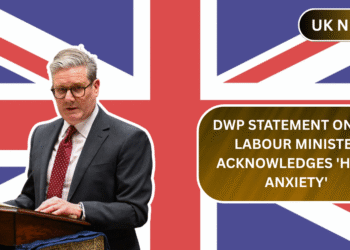Department for Work and Pensions (DWP) has confirmed that a specific group of 700,000 people will not be impacted by the proposed changes or cuts to Personal Independence Payment (PIP). This news comes amid ongoing discussions about welfare reform, assessments, and support for people living with disabilities in the UK.
Let’s break down what this update means, who is protected from these changes, and what the DWP’s future plans look like.
What is PIP and Why the Worry?
This Article Includes
Personal Independence Payment (PIP) is a benefit designed to help people aged 16 to State Pension age who have a long-term physical or mental health condition or disability. The money helps with extra living costs if you struggle with daily tasks or getting around.
Earlier in 2024, the government announced a green paper titled “Modernising Support for Independent Living”, which suggested possible changes to how PIP is paid and assessed. These proposals sparked concern among disabled communities, especially since some of the suggestions included replacing cash payments with vouchers or one-off grants, and tightening eligibility rules.
Who Are the 700,000 People That Won’t Be Affected?
The DWP has now clearly said that none of the 700,000 people who are already receiving PIP payments in Scotland will be impacted by the proposed changes.
Why? Because in Scotland, PIP has been replaced by a devolved benefit called Adult Disability Payment (ADP), which is administered by Social Security Scotland. The Scottish government took over responsibility for disability benefits in 2020 and introduced ADP as a more compassionate, person-centered replacement for PIP.
So, even though the UK government is discussing major changes to PIP in England and Wales, these changes won’t apply to people in Scotland—the 700,000 who are either receiving or applying for ADP.
What About People in England and Wales?
While the government says the goal is to improve fairness and manage rising costs, disability groups are warning that the proposed changes could reduce financial support for many people in England and Wales. Some options being considered include:
- Replacing regular payments with vouchers for medical equipment or services
- Offering one-off grants instead of monthly cash
- More “objective” health assessments, possibly done by healthcare professionals instead of current DWP assessments
However, the government insists that no decisions have been made yet, and a consultation period is open until July 22, 2025, during which members of the public, charities, and experts can give their feedback.
Why Is This Update Important?
This clarification from DWP is important for several reasons:
- It offers reassurance to people in Scotland, many of whom were confused and anxious about whether PIP changes would apply to them.
- It highlights the differences in welfare policies between devolved governments and Westminster.
- It encourages public participation in the ongoing consultation, showing that feedback from citizens can help shape future welfare decisions.
Campaigners Still Raise Concerns
Despite the reassurance for Scotland, campaigners are still warning that the proposed changes in England and Wales could create serious hardship for people with disabilities. The move away from cash support could limit independence and dignity, especially for people who rely on PIP to cover transportation, rent top-ups, or other essential expenses.
Charities like Scope and Disability Rights UK have said the current system needs improvement, but taking away direct cash payments is not the answer.
What Happens Next?
If you are currently receiving PIP in England or Wales, nothing changes for now. The consultation is ongoing, and any policy updates will likely take months or even years to roll out.
If you’re in Scotland, you can continue applying for or receiving Adult Disability Payment under the current rules, which remain separate from Westminster’s control.
The best step for now is to stay informed and, if possible, take part in the DWP’s public consultation to make your voice heard.
Final Words
The confirmation from the DWP that 700,000 people in Scotland won’t be affected by PIP cuts brings some much-needed clarity. But the future of disability benefits in England and Wales remains uncertain. With the consultation still open, now is the time for people to speak up about what changes they believe are fair—and what support they truly need to live independently.























